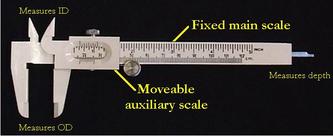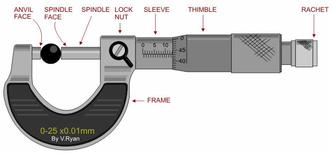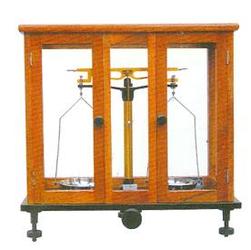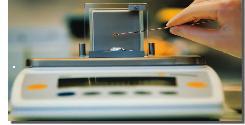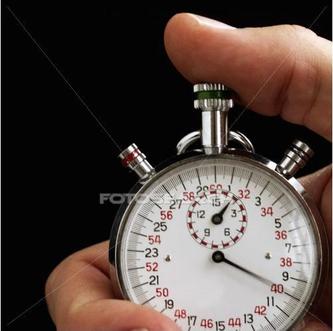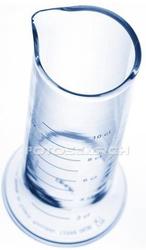Study Of Physics
CH.2 Measurement
For understanding the relationships between matter and energy, measuring them is very essential. There are thousands and thousands of different things around us. There are different kinds of forces around us and there are different kinds of energies that we come across every day. Thus there would be millions and millions of physical quantities and energies that could be measured. Yet you would be surprised to know that there are only seven basic units from which all other units are derived. These basic units are the units of length, mass, time, electric current, temperature and luminous intensity. Out of these only three fundamental or basic units of measurements are used in mechanics.
These are the units length, mass and time. All the measurements in physics are related to these three fundamental units. All other units of measurements can be derived from these three fundamental units.
While discussing these units of measurement we must be clear about two terms - unit and measure number. For example, when we say that the length of a line is five centimeters, the unit we have chosen is centimeter and the measure number is five as the line is five times the unit length.
While discussing these units of measurement we must be clear about two terms - unit and measure number. For example, when we say that the length of a line is five centimeters, the unit we have chosen is centimeter and the measure number is five as the line is five times the unit length.
Ch.02: Measurement 2.1 :- Physical Quantities
2.2 :- Need Of Standard For
Measuring
2.3 :- International System Of Units
2.4 :- Prefixes
2.5 :- Scientific Notation
2.6 :- Measuring Instruments
2.7 :- Error And Uncertainty in
Measurement
2.8 :- Significant Figures in
Measurements
2.9 :- Relationship Between Physical
Quantities
2.10 :- Proportionality Constant
2.2 :- Need Of Standard For
Measuring
2.3 :- International System Of Units
2.4 :- Prefixes
2.5 :- Scientific Notation
2.6 :- Measuring Instruments
2.7 :- Error And Uncertainty in
Measurement
2.8 :- Significant Figures in
Measurements
2.9 :- Relationship Between Physical
Quantities
2.10 :- Proportionality Constant
Ch.03: Kinematics
Ch.04: Motion And Force
Ch.05: Vectors
Ch.06: Equilibrium
Ch.07: Circular Motion and Gravition
Ch.08: Work,Power And Energy
Ch.09: Simple Machines
Ch.10: Properties of Matter
Ch.11: Heat
Ch.04: Motion And Force
Ch.05: Vectors
Ch.06: Equilibrium
Ch.07: Circular Motion and Gravition
Ch.08: Work,Power And Energy
Ch.09: Simple Machines
Ch.10: Properties of Matter
Ch.11: Heat
